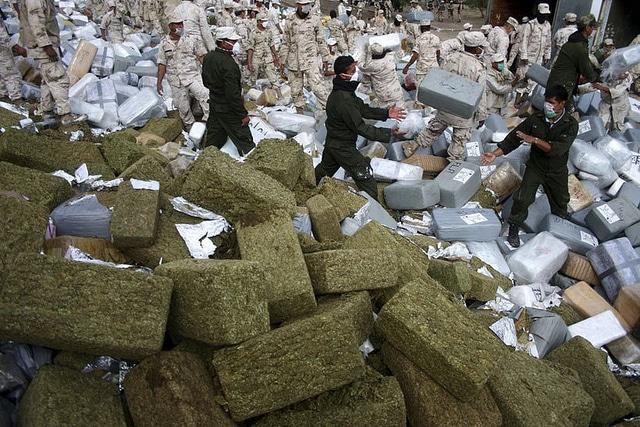In the shadowy landscape of Mexico’s ongoing battle against drug cartels, a new chapter seems to be unfolding. President Andrés Manuel López Obrador, long criticized for his seemingly passive approach to organized crime, appears to be sharpening his strategy. As the nation teeters between hope and harsh realities, whispers of a more aggressive stance against these powerful criminal networks are gaining momentum, promising a potential shift in the country’s long-standing drug war narrative. In recent months, Mexico’s political landscape has witnessed a potential shift in strategy against the entrenched drug cartels that have long plagued the nation. The current administration appears to be signaling a more aggressive approach to combating organized crime, moving beyond previous conciliatory tactics that have been criticized as ineffective.
Intelligence reports suggest a nuanced transformation in governmental tactics, with increased military and law enforcement coordination targeting key cartel leadership and disrupting established trade routes. This strategic pivot comes after years of perceived soft-handed negotiations that failed to significantly reduce drug-related violence.
New operational protocols indicate a willingness to confront criminal organizations more directly, utilizing advanced surveillance technologies and intelligence-gathering methods. Sources close to the presidential administration hint at a comprehensive strategy that goes beyond traditional military interventions, focusing on economic disruption and strategic interdiction.
The changing approach reflects growing public frustration with persistent narcotics-related violence that has claimed thousands of lives annually. Political analysts argue that the government recognizes the urgent need to demonstrate tangible progress in controlling cartel activities, which have historically undermined national security and economic stability.
Geopolitical considerations are also playing a significant role in this potential strategic realignment. Diplomatic pressures from international partners, particularly the United States, have intensified demands for more robust action against transnational criminal networks operating across borders.
Military intelligence suggests that targeted operations are being planned to dismantle complex financial networks that sustain cartel operations. These efforts aim to strike at the economic foundations of organized crime, recognizing that financial disruption can be more effective than traditional enforcement methods.
Legal reforms are being contemplated to provide law enforcement with enhanced capabilities to investigate and prosecute high-level criminal operatives. This legislative approach complements the operational strategies being developed to address systemic challenges in combating drug trafficking.
The potential shift represents a significant departure from previous administration strategies, signaling a more assertive stance against entrenched criminal organizations. While challenges remain substantial, the emerging approach suggests a comprehensive and multifaceted effort to address Mexico’s complex narcotics-related security challenges.
Economic analysts and security experts are closely monitoring these developments, anticipating potential ripple effects across regional criminal networks and international drug trade dynamics. The success of this potential new strategy could reshape Mexico’s approach to organized crime in the coming years.




![Hertz Is So Desperate To Unload Tesla Inventory It’s Asking Customers If They Just Want To Keep Their Rentals [UPDATE]](https://scriptori.com/wp-content/uploads/2024/12/83053-hertz-is-so-desperate-to-unload-tesla-inventory-its-asking-customers-if-they-just-want-to-keep-their-rentals-update-300x178.jpg)
